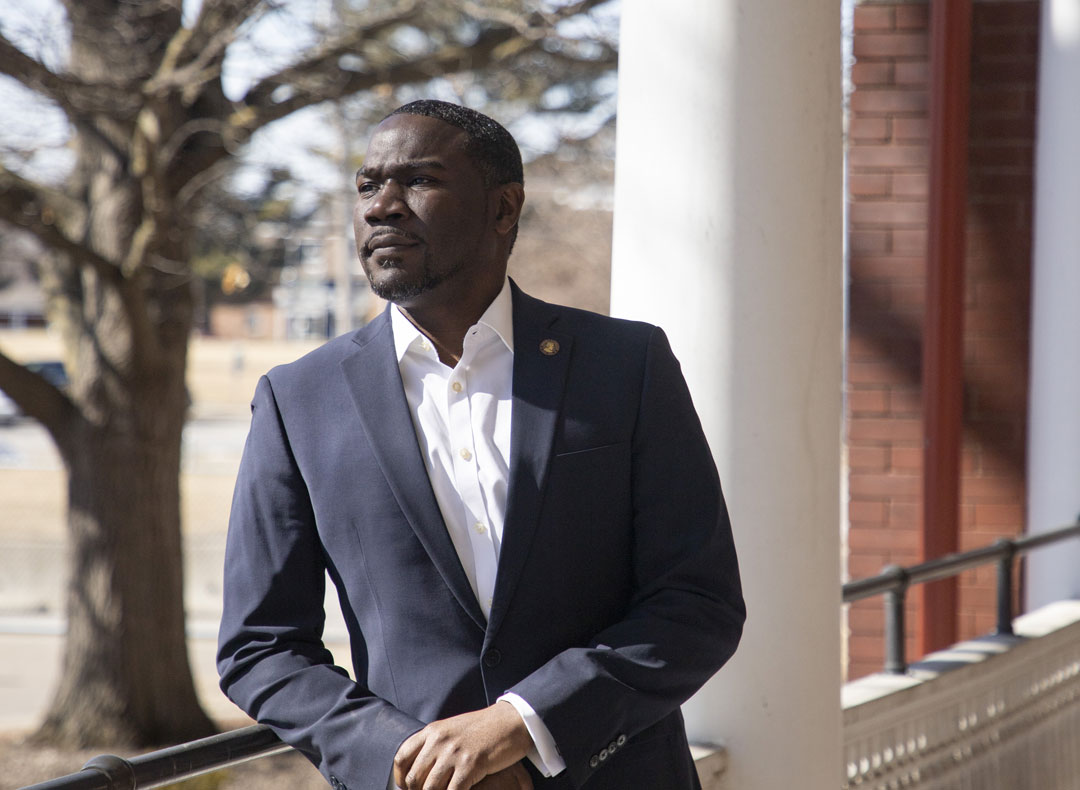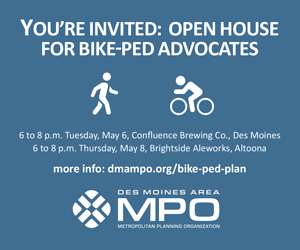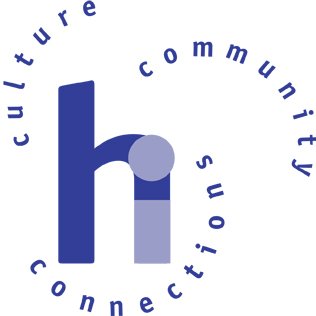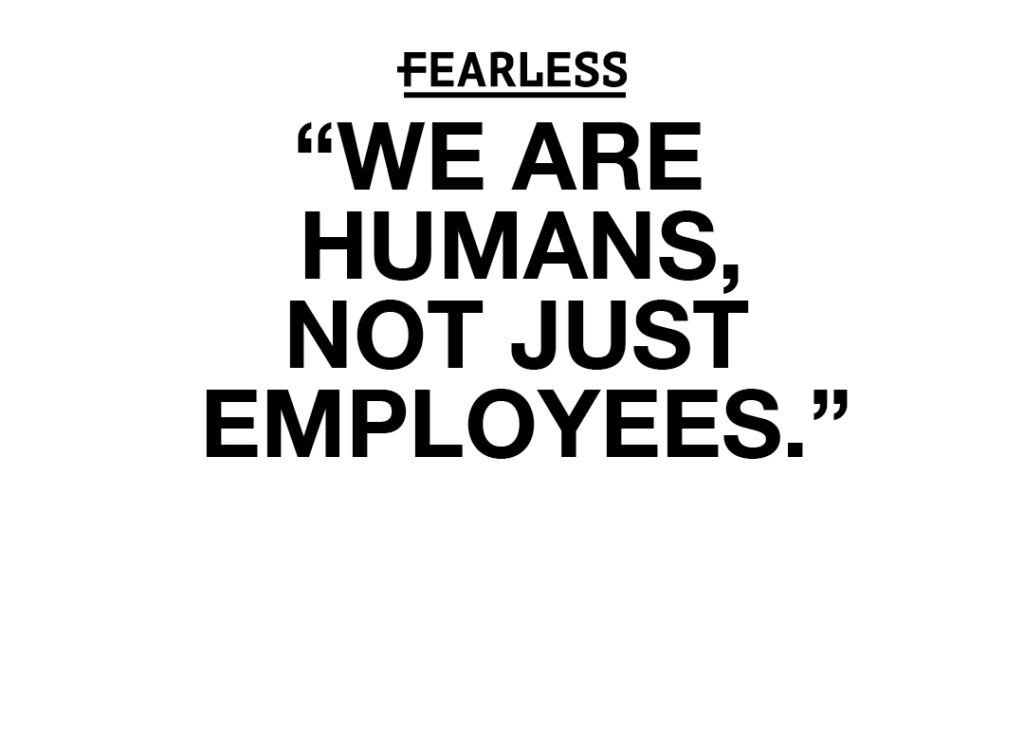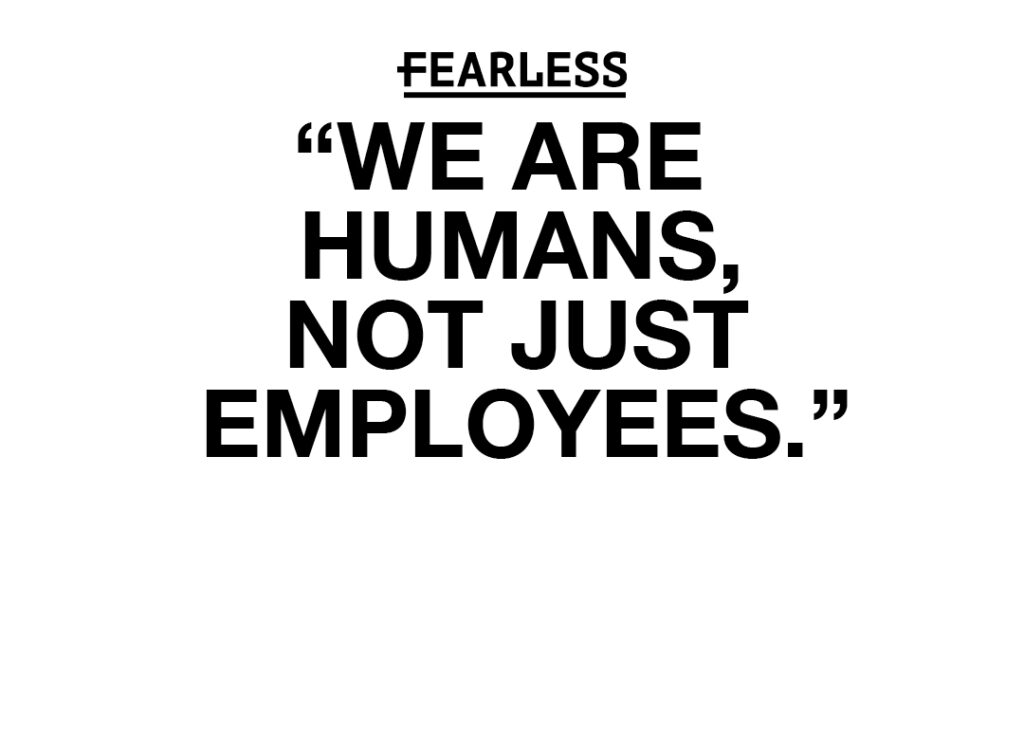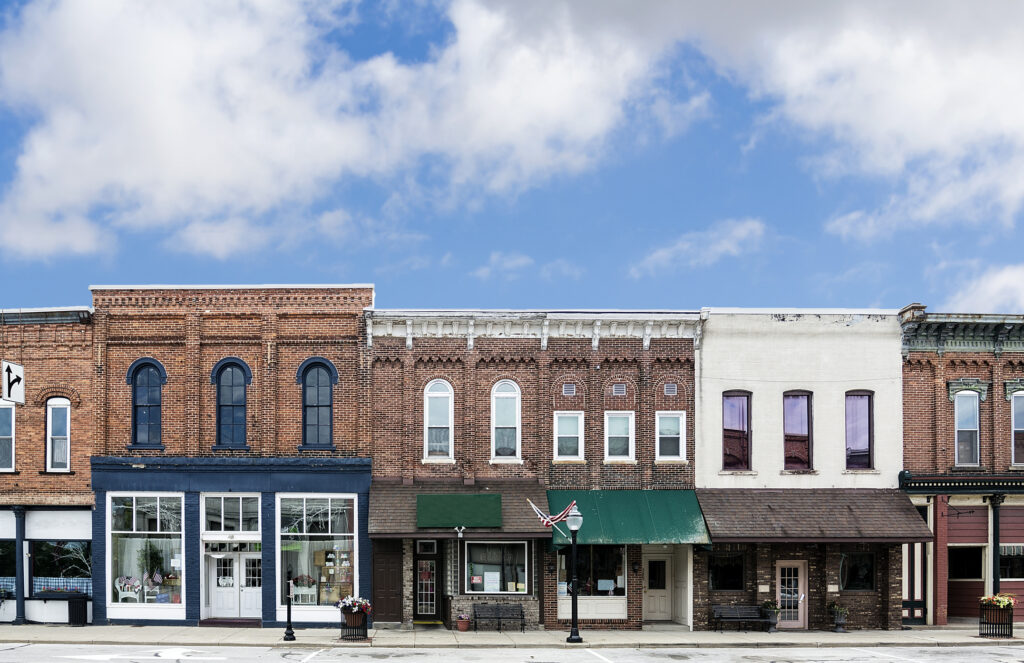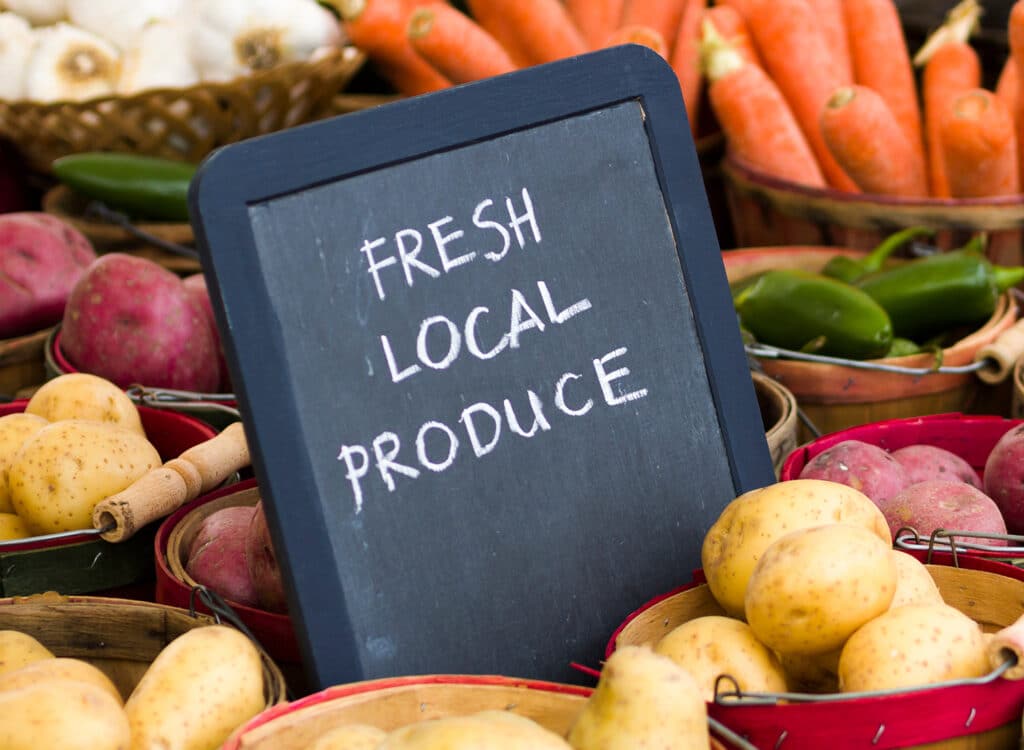A conversation on inclusion with Joshua Barr
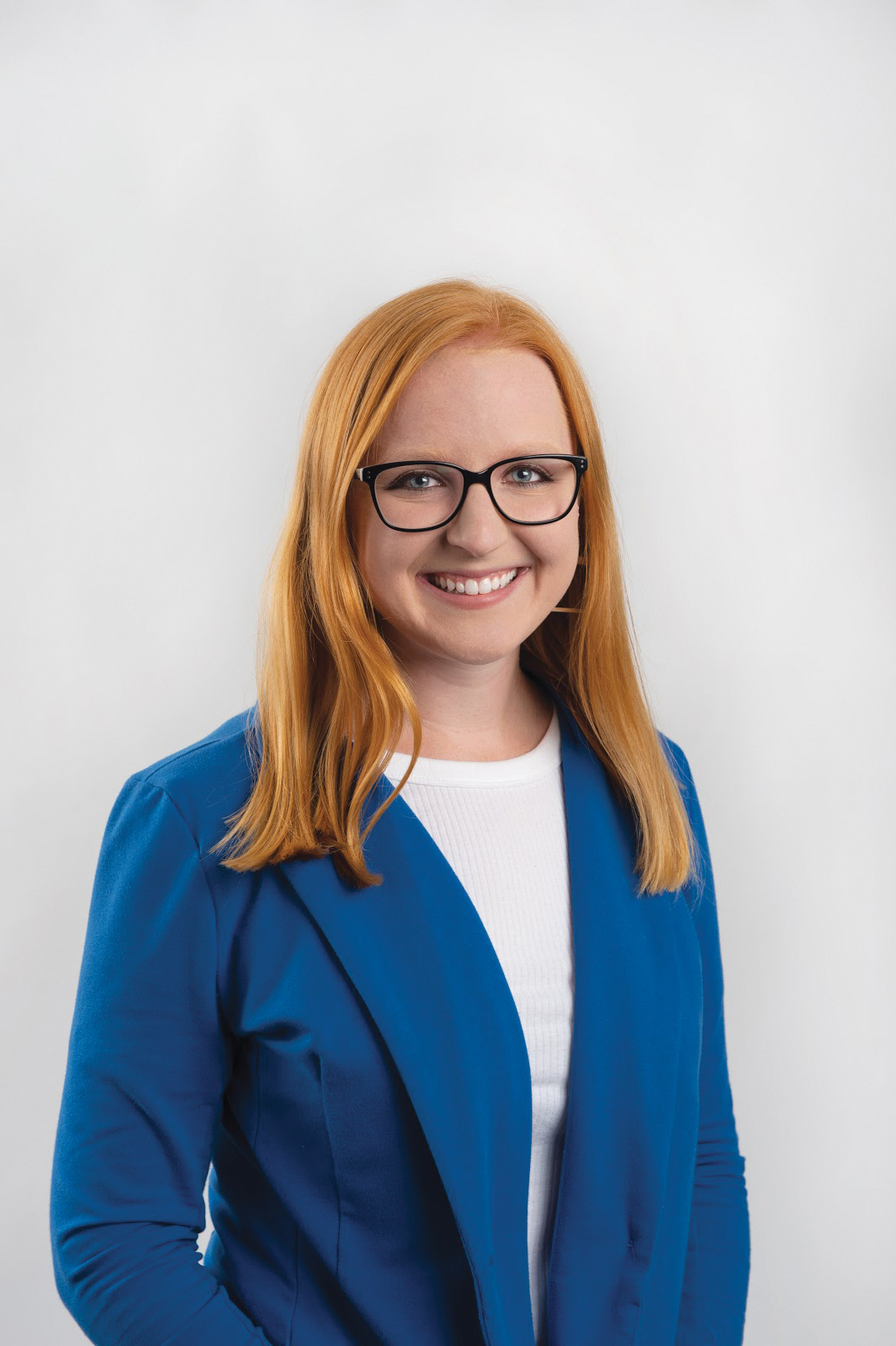
Emily Kestel Mar 10, 2023 | 6:00 am
<1 min read time
0 wordsArts and Culture, Business Record InsiderEditor’s note: This interview with Joshua Barr, owner of Raising the Barr LLC and former director of the Des Moines Civil and Human Rights Commission, is part of a Business Record series on workplace inclusion and belonging. Read part one on businessrecord.com. The following interview has been slightly edited and condensed for clarity.
To start, I’d love to hear your personal definition of the word inclusion.
A lot of times people think of inclusion as just letting people physically in, like, you’re in the job, you’re at the table. But inclusion is also a mindset. Are you inclusive enough to ideas that are different from your own ways of doing things? A lot of times people just think, “Oh, well, you’re here, you got the job.” … But I’m a person with ideas, thoughts on how we can do business or how we can move our community forward or how we can impact society.
There’s that analogy of “diversity is going to the dance, inclusion is being asked to dance.” There’s a difference between being asked to dance and being asked to dance on a song you want to dance to, and dance the way you want to dance. And that’s the next step.
Everybody wants to be seen, heard and acknowledged. And if I’m just seen, but I’m not heard, I’m not acknowledged for my contributions, it’s not enough. Everybody has been lonely in a crowded room before. They’re there, but they’re not being heard.
Ultimately, if you want to do performative, cosmetic appearance-type stuff, then yeah, just getting you in the room is enough for certain people. But for the people in that room who may be in some way culturally or physically different, that’s not enough. I don’t just want to be seen. I want to be acknowledged. I want to be heard. I want to be accepted.
With all of that in mind, do you see Iowa as being an inclusive place?
It’s not a yes-no. Life is much more muddled. The truth is always somewhere in between. What I’ve seen, both personally and with people I interact with, there’s always a stopping point where people – and I’m talking about Iowans of European descent – have felt like we’ve done enough. “We’ve let you in. How much community engagement do we have to do? How many laws do we need to change? How many times do we need to talk to this community?” Engagement doesn’t stop.
The past is a guidepost. It’s not a place where you pitch your tent. Time is ever moving forward. And as human beings there’s always going to be a clash, because everyone’s different in some aspect. And the history of the U.S. was a history of repressing differences, especially among Indigenous people and people of African descent, and women as well.
If you hang your hat on, “We were the first state to approve gay marriage,” then you don’t feel like you need to do anything else. You’re gonna get behind the times.
They say time changes everything, but that’s not true. It’s we who can change. We have that ability to move beyond the past and continue to move beyond the past. You can’t just pitch your tent on one good thing, like “We signed a diversity equity inclusion statement.” OK, now you’re actually going to implement some policies and practices that let people in?
You can look at downtown, you see these nice buildings, and you say, “Look how far we have come as a city.” But is it really “we”? Because if you look at the urban core, which is right next door to downtown, that’s one of the poorest regions in Iowa.
If you let them in, let them showcase their talents, let them grow, let them blossom, you improve their income, which hopefully proportionately improves their wealth, which then allows them to buy homes, which allows them to increase the price of the neighborhood, which allows governments and businesses to benefit and make more money and that builds the entire tax base, which improves health, which improves crime statistics, which improves the opportunity for school education. The entire community benefits from being truly inclusive. And that’s the thing people miss.
We’re polite to people’s faces, but we don’t look at the overall impact of when you let people in, allow them to flourish, how new ideas come to the surface. The inventor of the traffic light, Garrett Morgan, a Black man. The inventor of the shoe press, which allows us to make shoes at astronomical rates, Jan Matzeliger, a Black man. Inventor of the [home security system], Maria Van Brittan Brown, a Black woman. The person that came up with a mathematical equation for GPS, which guided me here, Dr. Gladys West, a Black woman. Everybody has something to contribute, but when we try to stifle certain communities and not try to repair the damage that was done to those communities, even if it was unintentional, it actually stifles us as a community.
Tell me your thoughts about the phrase “Iowa Nice.”
Well, again, there’s a difference between being nice and being kind. One of the things I teach people who are moving to the United States is when people ask, “How are you doing,” they don’t really care. Just saying hello is nice. But when you see someone down, kindness is listening to their problems, seeing how you can assist. Being nice is not enough. You need to be kind. And the thing you have to understand is, being kind requires some sort of sacrifice, a sacrifice of your time, sacrifice of certain resources. Say, for instance, someone needs a ride down the block. You’re sacrificing your gas and your time. A nice thing to say, though, is, “I’ll pray for you.” We have to put in the work as a community if we truly want to be kind.
I know a lot of people that think Midwest nice or Iowa nice is just being passive-aggressive. You know, saying the right things versus doing the right things. And I personally sign with that sentiment. I’ve had to engage with a number of people who to my face were very polite but they were trying to do different things to stifle certain growth and movement in the community, outside of my face.
I want to make sure I’m clear: This isn’t just European Americans. A lot of people come here and they buy into that philosophy of “I just want to fit in, say the right things and be polite, and everything will be OK for me.” But the thing is, again, when you adopt that philosophy of Iowa nice, you aren’t really listening. Truly listening to people and communities requires that you do something, and that’s in any relationship. Especially post-George Floyd, I did a lot of events and politicians would come in and say, “I’m just here to listen.” What have you been doing the past 20, 30, 40 years in these positions of power? And now you come to listen? Listening really requires that you do something. Sometimes it’s not instant, and you’re going to stumble, fall, make mistakes along the way. Real listening requires that you change, and Iowa nice isn’t about real listening. It’s very performative, very cosmetic. Iowa nice needs to transform to Iowa kind, where we’d be taking care of all humankind within Iowa.
At a Business Record Envision Iowa event last year, Iowa State research scientist Leisl Eathington talked about how Iowans often don’t even want to have conversations about uncomfortable topics relating to inclusion and how we’ve fallen behind and how we really need to be doing better. And that’s part of the problem, too. Would you say that that’s fair?
There’s an issue that most people just don’t understand. It’s a thing called constructive tension, where you’re talking about things that are uncomfortable, hopefully with the point of “We’re talking through this so we can get to that point that we want to be.” But a lot of times most people are so conflict-averse, risk-averse, that we don’t even want to go through tense moments.
When you have those constructive tension moments, they can transform a community. But I mean, [Eathington is] absolutely right. I loved everything she had to say. Because, again, a lot of people have put down their flag on something they did 10, 15, 20 [years ago]. Some people still put their flag on what Robert D. Ray did. I think, again, we should use history as a guidepost. Robert Ray did that, and it was the right thing to do. How can we continue to carry that legacy forward?
We did a number of community dialogues in 2018 and 2019. Honestly, they were a smashing success in regards to helping change some policies, change some laws. But then when George Floyd happened, everybody went back into their corners on both sides. You know, politicians and in government, people in the community, they’d forgotten to progress, and myself and a few others in the middle were saying, “We need to talk more.” Everybody’s trying to save face and save position rather than save the community.
The other thing that she said during that session that really resonated with me, and I’ve done a few presentations just based on her words, is that a lot of times people come to her and ask her about what we should be doing. And then she was like, “No, we need to look at what do we need to stop doing,” and she’s 100% correct. And the work that I’ve done over the last 10, 12 years or so, I’ve really looked back on what are the things that organizations need to stop doing that really can bring about a better work environment, and also a better community.
So answer your own question, what do businesses need to stop doing?
- We need to stop celebrating that one person that “made it,” and examine the system where there are so many barriers in place. One of my first weeks of becoming a lawyer, I went back to my hometown county courthouse. Sumter County, S.C., is pretty small. The chief prosecutor for the county wanted to meet me and give me a tour of the courthouse. So he’s giving me a tour, and we’re walking in all six courtrooms. Every single courtroom I walked into, there was somebody in handcuffs that I went to middle school or high school with. These weren’t bad kids, because I knew them growing up. But somehow they got caught in a bad place, and they adapted to that environment to try and survive.
- We need to stop trying to hire different cultures and skin colors without looking inward to determine if it’s the kind of place those people want to come to. Is this an inclusive environment? And it’s not just “We put up a [Black Lives Matter] sticker or a gay pride flag up.” No, it’s are we listening, hearing and acknowledging people and the things that they bring to the table?
- Another thing we have to do is stop thinking that people in organizations are independent of everything going around them. We need to know that we are a part of the community, both in the services we offer and the people that we hire, and the impact that we have on the environment. There are no neutrals in life. Everything we do is either lifting us up or tearing us down. That’s from the food you eat, to the music you listen to, to the things you read, to the business we engage in.
- We need to stop assuming that one person, one DEI officer, is going to fix everything. We all have a role to play. Many hands make for light work. Learning is a lifelong process. We have to continue to learn because things keep changing around us. I think we also have to stop assuming that someone else is going to do the work. We live in a society. Society has more influence on an individual than an individual has on a society. The great man and great woman theory that one person can do everything is a big fallacy. You know, Martin Luther King and Rosa Parks … didn’t act alone. It takes all of us to do the work to transform our communities. We all are shaped by the people and things around us, and we need to break the myth of individuality and start to come together as a society and truly be inclusive towards one another.
Do you think that George Floyd’s murder was kind of the catalyst or wake-up call for some companies here in Des Moines to start doing this work more conscientiously? Or was the work happening before?
I think a lot of companies were doing stuff or trying to do stuff before George Floyd. But again, it was at a pace where nobody wanted to rock boats, no one wanted to upset their stakeholders, shareholders or donors. The work was already happening. But it was moving at a pace where it was seen as something additional to do, not part of who we truly are. That’s the biggest issue with a lot of DEI work, is they see it as something additional and not at the core of what we are. Everybody on this planet is in some way different, and we have different ideas, thoughts and feelings at different times. So doing the work can’t be seen as something additional on my plate. It has to be seen as “This is core to keeping a society where everybody has the opportunity to succeed.” George Floyd and his death was seen as a disruption in the way it was. We’re trying to get back to normal – the pandemic too. We’re trying to get back to normal. But, you know, your normal wasn’t working for a lot of communities. So how do we create a new normal, where everyone has the ability to thrive and contribute and bring their talents and things to the table for the benefit of greater society?
I’ve seen more often now that inclusion is being seen as a workforce recruitment and retention strategy.
That’s never bothered me. Sometimes it just takes longer for things to click for people. So if you’re doing it with the business aspect of “It’s actually more affordable to create an environment where not everybody’s leaving,” and knowing that Iowa’s workforce and future is dependent upon people coming to the state both from in and out of the country. We have to create that environment where those persons feel that they’re being seen, heard and acknowledged.
So yeah, if that’s what it takes for you to get to it. Great. Fine. The only issue is, again, thinking you’ve done enough. “We have a Pride day, aren’t you happy?” There’s continual work that has to be done. It’s not about a day. And that’s the part we’re missing. We’re trying to do one thing. It’s not just about events. You know, a lot of times when I meet with communities, they say, “We’ve got to do more events.” And I’m like, “You’re absolutely right. But one or two events ain’t gonna solve racism.” You have to do the deep work. You have to put parameters in place where these people feel safe.
The Business Record is an apolitical publication. So we don’t mean to bring partisan politics into it, but I think it would be ignorant to not address that the government has an outsized impact on whether or not people decide to come live here. Individual businesses can only do so much to make people want to come live here.
Individual businesses can only do so much, but collectively they can do more. Certain businesses have a really big voice. A lot of times nowadays, most politicians fall in line with what business wants. If business changes their stance, usually everything else falls into place, because politicians understand that these people finance and fund our campaigns, and give us places where we can speak and engage with people. So business does have major power because they have major money. Everybody has a role to play. Government, business and people.
Government is kind of the face, meaning they’re the ones that get prime-time television. They do set the tone of what a state stands for. As someone who had a prominent government position in the city, I used to get calls all the time from people who found me on the internet, saying, “Man, I’m a Black guy, my family, we just got an offer to come take this job here. Is it really a good place for Black folks?” They want to know. These are questions that different communities are asking for. And I’ll be honest, a lot of times some people come here because the doors are being opened to them, but once they get here, they recognize, “Yeah, that’s not the place for me. I’m going to just do my five years, build up my name, but I’m getting the heck out of here.” That happens a lot. Way more than people think.
Don’t underestimate the power of business, especially big business. But the problem is, and I’m not talking about business, I’m talking about all communities. One of the biggest problems, especially with individuals, is that we think that change only happens every two to four years at the polls. Not true. There’s a thing called civic engagement. Again, everything you’re doing is either lifting things up or tearing it down. And if you’re not being civically engaged with what’s happening in your community, not going to city council meetings, not going to your school board meetings, you don’t write letters or send emails to your representative, following up talking about your issues, then these politicians can feel like they can come in here and do whatever they want, because there’s no accountability. So all of us have a role to play.
Oftentimes companies will say that inclusion is a journey with no end, and that there’s no final destination. But what would the ideal utopia of an inclusive society look like? What would that entail?
EIV. Engage, include, value. A really inclusive community is a place of constant engaging regarding the pulse of the community and the pulse of your workforce. How are we doing? And that can be done through surveys, focus group conversations, one-on-ones, etc. You want to include them in the decision-making process because a lot of times, and this is the error of a lot of people, they do the engagement and then they go off into a room by themselves and make a decision, and they never bring it back. And they totally blunder. This is something that we tried to do a few years back and we did a bunch of dialogues, where we engaged the community, we heard their thoughts and ideas. Then we crafted policies and concepts of policies. And instead of taking that straight to the city manager or the mayor’s office with what the community wants, we went right back and got more input and asked, “Did we get it right?” Then we went to the implementation phase. You have to, if you really value people, you have to do something for them. Value is changing your policies, changing your practices. That’s where that extra step and listening comes from.
And so a utopia for me is where people are being engaged and heard. They’re being included in the decision-making process. They’re being valued through actions by decision-makers, both in businesses and laws, but also when we’re increasing opportunities for young people to self-actualize and self-transcend. It’s by the people, for the people and with the people, in my opinion. I’m not so big on performative things. We live in a capitalist republic, which means that if you actually want to do something beneficial, you have to change laws. And in capitalism, money is king. You have to dedicate resources to communities and to things you’ve now changed. So performative stuff means nothing to me, and that irks certain people.
We have talent right here, but because we stifle them … society suffers.

Emily Kestel
Emily Kestel is the Fearless Editor for Business Record. She covers women’s issues as well as other human interest stories.

